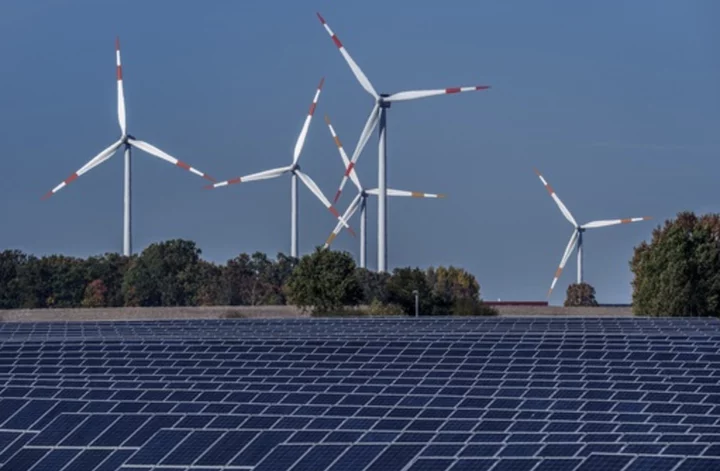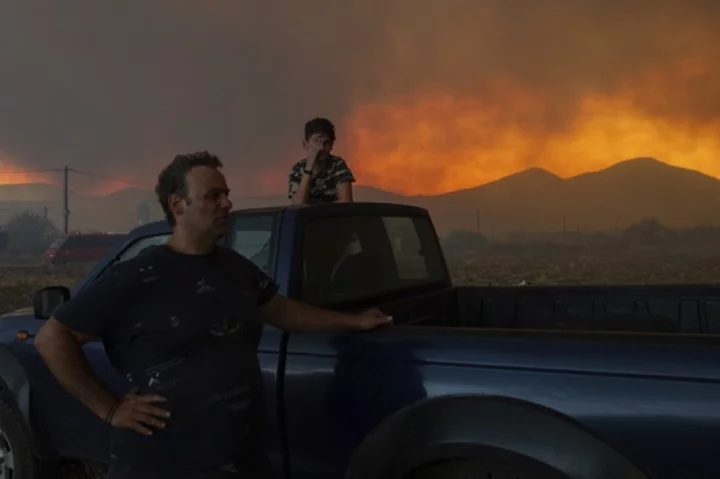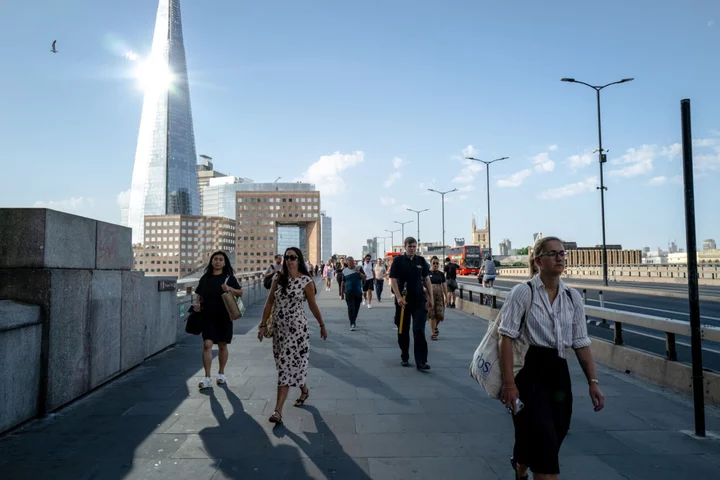The world is falling well short of the progress needed to meet the United Nations' sustainable development goals by 2030 in areas ranging from poverty to clean energy to biodiversity, with a growing gap between wealthy and developing nations, according to a report Tuesday from the nonprofit tracking the goals.
The coronavirus pandemic stalled the limited progress made in the years after United Nations member states adopted the goals in 2015. Now, halfway through the 15-year time frame, not a single one of the goals is on target to be met.
“We're at the risk of a lost decade for sustainable development,” said Guillaume Lafortune, a lead author of the report and vice president and head of the Paris office of the Sustainable Development Solutions Network, the nonprofit launched by the UN to foster and track sustainable development. “And there’s actually a risk that the gap between rich and poor countries on sustainable development might be bigger in 2030 than it was in 2015.”
The goals, which the authors described as “an ethical imperative,” cover a range of areas, including threats to the climate and environment but also basic human rights such as food, health and education.
The authors noted that goals for reducing hunger, improving health and protecting biodiversity are particularly off-track. They said changing global governance mechanisms and global finance architecture are critical for improving progress on all the goals.
Lafortune pointed to the global finance summit that opens Thursday in Paris as an important moment for the world. A main focus of the summit is how international finance can be reformed to help the developing nations that are often most vulnerable to climate change but least able to raise capital for things like transitioning to renewable energy.
The report analyzed countries' progress on the sustainability goals by assigning them scores from zero to 100. They examined factors like poverty, hunger, disease, carbon dioxide emissions, subjective well-being scores and dozens of other indicators. Finland, Sweden, Denmark, Germany and Austria ranked highest. South Sudan ranked lowest, followed by the Central African Republic, Chad, Yemen and Somalia.
Lafortune called particular attention to the “disappointing” United States scorecard, which he said was below average for developed countries. He said the U.S. was one of the worst performers in terms of its commitment efforts and was one of only five member countries that did not present action plans and priorities to the international community. But Lafortune did note that some U.S. cities voluntarily provided local reviews.
Kimberly Marion Suiseeya, an associate professor of political science and environmental policy and culture at Northwestern University who did not work on the report, said that while she sees pressing global development shortfalls on issues like the climate emergency, she thinks the Biden administration is taking climate seriously. She also saw signs of optimism in China's progress on renewable energy. Though the country ranked below the U.S. in the report, it has invested more in clean energy, according to research firm BloombergNEF.
Anita Ramasastry, a law professor and director of the Sustainable International Development graduate program at the University of Washington, said she wasn't surprised that the sustainable development goals are off track. Ramasastry, who had no part in the report, said she doesn’t think many governments with more advanced economies, like the U.S., have embraced the goals or made them relevant to citizens’ daily lives.
She questioned whether the goals were overly ambitious and added that it will be important to examine how the 2030 agenda is financed, as well as the role of the private sector.
“Business has been asked to fill a role. And I think there’s just an ultimate question, which is should we have asked business to fill that role?” she asked. “Because ultimately the SDGs are meant to be about governments and states.”
The report made the same point repeatedly, singling out several “basic failures” in global governance. Those included voluntary implementation of the goals with no enforcement mechanisms when countries fall short, international trade and finance rules not geared to sustainability, and national governments not coordinating well with smaller units of government on the goals.
Lafortune called for countries to keep the sustainable development goals in mind as they approach the Paris summit and other global conferences. He said Paris has the opportunity to act as an “accelerator” toward reforming international institutions like the International Monetary Fund and the World Bank, which he sees as possible elements of a global strategy for investment in tackling climate change and other sustainable development goals.
“Despite all the fragmentation right now in geopolitics, the many crises and so on, we still need to keep that sort of long-term vision and this idea of multilateralism and global cooperation alive. I think this is absolutely crucial,” Lafortune said. “I don’t think the world will be better off if we just forget about these goals because we won’t achieve them.”
__
Follow Melina Walling on Twitter at @MelinaWalling
__
Associated Press climate and environmental coverage receives support from several private foundations. See more about AP’s climate initiative here. The AP is solely responsible for all content.









